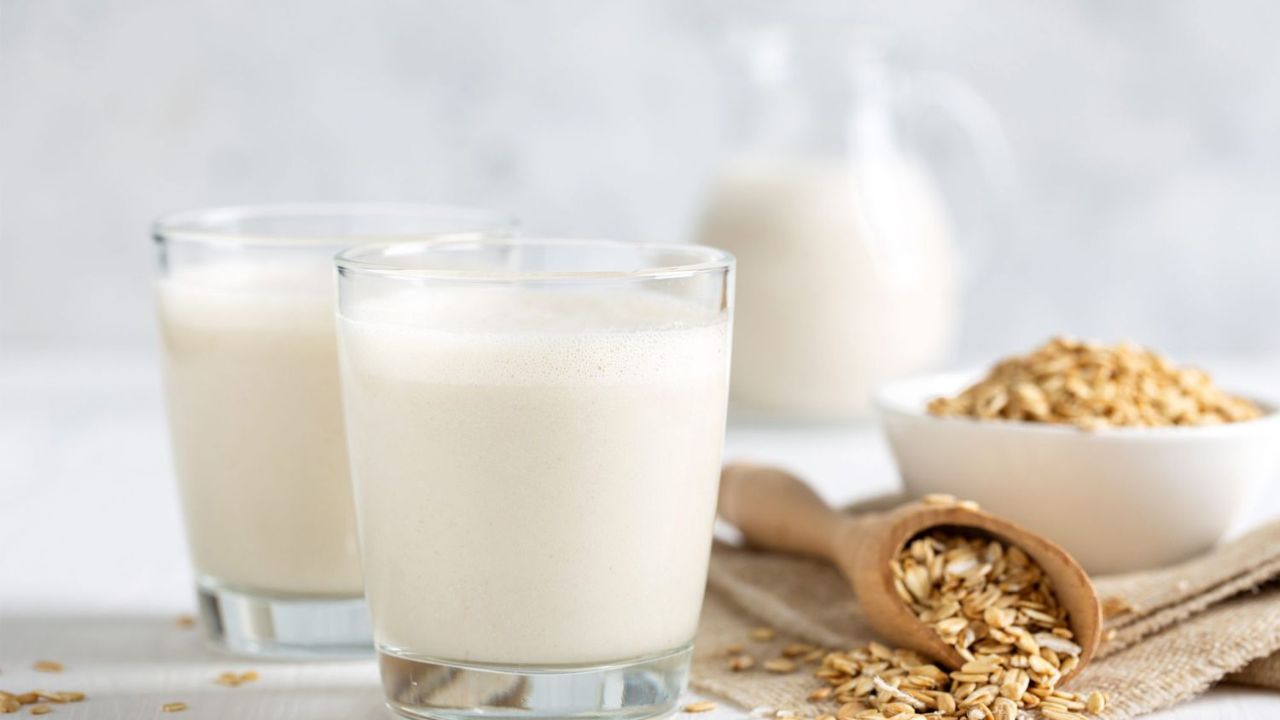Oat milk has become a popular alternative to traditional dairy milk in recent years, thanks to its creamy texture, mild flavor, and versatility in recipes. However, not everyone can or wants to use oat milk for various reasons, such as allergies, dietary restrictions, or personal preferences. Luckily, there are plenty of other non-dairy milk alternatives available in the market, and in this post, we will introduce you to the seven best substitutes for oat milk.
What is Oat Milk?
Oat milk is a dairy-free, lactose-free, and vegan-friendly milk alternative to cow’s milk. It is made by soaking oats in water, blending them, and then straining the mixture. The resulting milk can be consumed as is or flavored with natural sweeteners like vanilla, dates, or cinnamon.
Because oats easily absorb water, more of the oat solids remain in the milk after blending and straining. This gives oat milk a creamy texture and high levels of fiber and protein from the oats. The leftover oat pulp can also be repurposed by baking it into cookies, using it to make porridge, or even as a natural face mask.
Best Oat Milk Substitutes
1. Soy Milk
Soy milk is one of the most popular non-dairy milk alternatives, and for good reason. It has a mild and slightly nutty flavor, which can be easily incorporated into various recipes, from smoothies to coffee drinks to baked goods.
Soy milk is also a good source of protein, calcium, and vitamin D, making it a nutritious option for vegans or people with lactose intolerance.
However, some people may have concerns about the potential hormonal effects of soy, especially for men, or may be allergic to soy products, so it’s essential to consider individual needs and preferences.
2. Almond Milk
Almond milk is another popular non-dairy milk alternative that has a nutty and slightly sweet flavor, which works well in coffee, cereal, or oatmeal.
Almond milk is also low in calories and fat and high in vitamin E, making it a good option for people who want to watch their weight or improve their skin health.
However, almond milk may not be suitable for people with nut allergies, and it also has a lower protein content than soy or cow’s milk.
3. Coconut Milk
Coconut milk has a distinct flavor and aroma that may not be for everyone, but it can add a tropical twist to your favorite recipes.
Coconut milk is also rich in healthy fats, fiber, and iron, making it a good option for people who follow a ketogenic or paleo diet or have gut health issues.
However, coconut milk is also high in calories and saturated fat, so it’s best to use it in moderation or choose a light version.
4. Rice Milk
Rice milk has a mild and slightly sweet flavor that is similar to oat milk, but it is thinner and less creamy in texture.
Rice milk is also hypoallergenic, making it a safe choice for people with allergies to nuts, soy, or dairy products.
However, rice milk has a lower protein content than other non-dairy milk alternatives, and it may also contain added sugars or thickeners, so it’s essential to read the labels carefully.
5. Hemp Milk
Hemp milk is a relatively new non-dairy milk alternative that has a nutty and earthy flavor, which can complement smoothies, coffee, or tea.
Hemp milk is also rich in omega-3 and omega-6 fatty acids, which are essential for brain and heart health, as well as iron and calcium.
However, hemp milk may not be widely available or may be more expensive than other non-dairy milk alternatives, so it’s important to check the price and availability before making a purchase.
6. Pea Milk
Pea milk is a lesser-known non-dairy milk alternative that has a mild and slightly sweet flavor, similar to cow’s milk.
Pea milk is also high in protein, fiber, and calcium, making it a good option for people who want to build muscle or maintain bone health.
However, pea milk may not be as widely available as other non-dairy milk alternatives, and it may also be more expensive or have a shorter shelf life.
7. Flax Milk
Flax milk is a vegan and gluten-free non-dairy milk alternative that has a nutty and creamy flavor, which can be a good substitute for oat milk in smoothies or baked goods.
Flax milk is also low in calories and fat, but high in omega-3 fatty acids, which are essential for heart health and brain function.
Flax milk is also a good source of fiber, iron, and vitamin E, making it a nutritious option for vegans or people with dietary restrictions.
However, flax milk may not be as widely available as other non-dairy milk alternatives, and it may also have a thinner and more watery texture than oat milk.
Conclusion
In conclusion, oat milk is not the only non-dairy milk alternative available in the market, and there are plenty of other options to choose from, depending on your taste preferences, dietary needs, and budget.
Soy milk, almond milk, coconut milk, rice milk, hemp milk, pea milk, and flax milk are all viable substitutes for oat milk, and they each have their unique flavor, texture, and nutritional profile.
It’s important to experiment with different non-dairy milk alternatives and find the one that works best for you and your lifestyle. Whether you are vegan, lactose intolerant, or simply looking to try something new, there is a non-dairy milk alternative out there for you.
